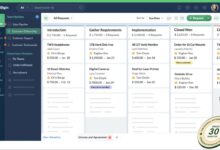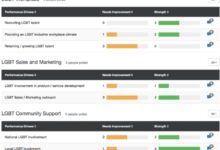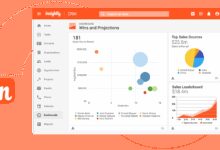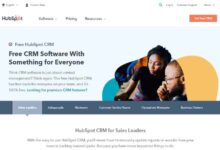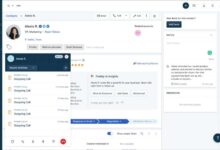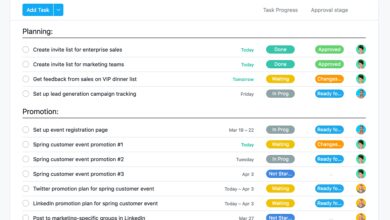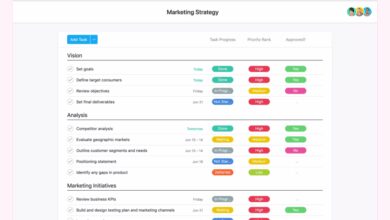Best CRM Software for Small Business Reviews: 7 Ultimate Picks
Looking for the best CRM software for small business reviews? You’re not alone. Choosing the right CRM can transform how you manage leads, nurture relationships, and grow your business—without breaking the bank.
Why the Best CRM Software for Small Business Reviews Matters

For small businesses, every dollar counts. A CRM (Customer Relationship Management) system isn’t just for enterprise-level companies anymore. Today’s cloud-based, affordable tools make it possible for startups and SMEs to compete with bigger players by managing customer interactions more efficiently.
What Is a CRM and Why Do You Need One?
A CRM system centralizes customer data, tracks interactions, automates follow-ups, and helps sales and marketing teams work smarter. For small businesses, this means less time chasing emails and spreadsheets and more time closing deals.
- Stores contact information, purchase history, and communication logs
- Automates repetitive tasks like email follow-ups and appointment scheduling
- Provides insights into customer behavior and sales pipelines
According to Salesforce’s State of the Connected Customer report, 88% of customers expect companies to understand their unique needs. A CRM makes that possible—even for a team of five.
Common Pain Points for Small Businesses Without a CRM
Operating without a CRM often leads to missed opportunities and disorganized workflows. Common issues include:
- Lost leads due to poor follow-up
- Duplicate data across spreadsheets and email inboxes
- Inability to track sales performance or forecast revenue
- Poor customer service due to lack of context
“Without a CRM, we were losing 30% of our leads just because no one followed up in time,” says Sarah Lin, founder of a boutique marketing agency in Austin.
Implementing one of the best CRM software for small business reviews can eliminate these inefficiencies and scale with your growth.
Top 7 Best CRM Software for Small Business Reviews in 2024
After extensive testing, user feedback analysis, and feature comparisons, we’ve narrowed down the top seven CRM platforms that deliver real value for small businesses. These tools balance affordability, ease of use, and powerful functionality.
1. HubSpot CRM – Best Overall for Free Features
HubSpot CRM consistently ranks as one of the best CRM software for small business reviews thanks to its powerful free tier and seamless integration with marketing, sales, and service tools.
- Free Forever Plan: Includes contact management, deal tracking, email tracking, and live chat
- User-Friendly Interface: Intuitive dashboard with drag-and-drop deal pipelines
- Integration Ecosystem: Connects with over 1,000 apps including Gmail, Outlook, Slack, and Shopify
HubSpot’s free CRM is ideal for startups and solopreneurs who want enterprise-grade features without the price tag. Paid tiers unlock automation, custom reporting, and advanced workflows.
best crm software for small business reviews – Best crm software for small business reviews menjadi aspek penting yang dibahas di sini.
Learn more at HubSpot CRM official site.
2. Zoho CRM – Best for Customization and Scalability
Zoho CRM stands out in best CRM software for small business reviews for its deep customization options and AI-powered assistant, Zia.
- Adaptive Workflow Automation: Tailor sales processes to your unique business model
- Zia AI: Predicts deal closures, detects sentiment in emails, and suggests next steps
- Multi-Channel Communication: Built-in phone, email, social, and live chat support
Zoho CRM starts at $14/user/month and offers a free plan for up to three users. Its modular design allows businesses to add features like inventory management or project tracking as they grow.
Explore Zoho CRM at Zoho CRM official website.
3. Salesforce Essentials – Best for Enterprise-Grade Features on a Budget
Salesforce, the global CRM leader, offers Salesforce Essentials—a streamlined version designed specifically for small businesses with up to 10 users.
- Powerful Reporting: Real-time dashboards and forecasting tools
- Mobile App: Full functionality on iOS and Android devices
- AppExchange: Access to thousands of third-party integrations
Priced at $25/user/month, Salesforce Essentials brings enterprise-level capabilities like lead scoring, workflow automation, and role-based access to small teams.
Visit Salesforce Essentials page for details.
4. Freshsales (by Freshworks) – Best for Sales Automation
Freshsales excels in automating sales workflows, making it a top contender in best CRM software for small business reviews focused on efficiency.
- Visual Deal Pipeline: Drag-and-drop interface with real-time updates
- AI-Based Lead Scoring: Automatically ranks leads based on engagement
- Integrated Phone & Email: Make calls and send emails directly from the CRM
Freshsales starts at $15/user/month and includes a free trial. Its AI-powered insights help sales reps prioritize high-value leads and reduce manual data entry.
best crm software for small business reviews – Best crm software for small business reviews menjadi aspek penting yang dibahas di sini.
Check out Freshworks CRM for more.
5. Pipedrive – Best for Visual Sales Pipeline Management
Pipedrive was built by salespeople for salespeople. Its visual pipeline-centric approach makes it a favorite among small sales teams.
- Drag-and-Drop Pipeline: Easily move deals through stages with intuitive UI
- Activity Reminders: Schedule tasks, calls, and follow-ups with calendar sync
- Revenue Forecasting: Predict future income based on pipeline data
Pipedrive starts at $14.90/user/month and offers a 14-day free trial. It integrates with tools like Mailchimp, QuickBooks, and Google Workspace.
Learn more at Pipedrive official site.
6. Insightly – Best for Project and CRM Integration
For small businesses managing both customer relationships and projects, Insightly combines CRM with project management seamlessly.
- Project Tracking: Assign tasks, set milestones, and track progress
- Customer Lifecycle Management: From lead to repeat buyer, track every touchpoint
- Bidirectional Sync with Gmail and Outlook: No double data entry
Insightly starts at $29/user/month and is ideal for consulting firms, contractors, and agencies juggling client work and sales.
Visit Insightly CRM for a free trial.
7. Keap (formerly Infusionsoft) – Best for Marketing Automation
Keap is designed for small businesses that want to automate marketing and sales together—especially service-based businesses like coaches, consultants, and fitness trainers.
- Powerful Automation: Create workflows for email, SMS, and appointment booking
- Appointment Scheduling: Sync with calendars and send automated reminders
- Payment Integration: Accept payments and set up recurring billing
Keap starts at $79/month for the Lite plan and scales with your needs. While pricier than others, its all-in-one approach saves time and reduces tool sprawl.
best crm software for small business reviews – Best crm software for small business reviews menjadi aspek penting yang dibahas di sini.
Explore Keap at Keap official website.
Key Features to Look for in the Best CRM Software for Small Business Reviews
Not all CRMs are created equal. When evaluating options, focus on features that align with your business goals and team size.
1. Contact and Lead Management
The foundation of any CRM is its ability to store and organize customer data. Look for:
- Custom fields for capturing relevant info (e.g., industry, budget, source)
- Duplicate detection to avoid clutter
- Tagging and segmentation for targeted communication
A robust contact database ensures no lead falls through the cracks.
2. Sales Pipeline and Deal Tracking
A visual sales pipeline helps teams understand where each deal stands. Key features include:
- Customizable stages (e.g., Prospect, Demo Scheduled, Negotiation)
- Drag-and-drop functionality for easy updates
- Deal value and probability tracking for forecasting
Tools like Pipedrive and HubSpot excel here, offering real-time visibility into sales performance.
3. Automation and Workflow Tools
Automation saves time and reduces human error. Essential automations include:
- Email follow-ups based on user behavior
- Task assignments when a deal moves to a new stage
- Lead assignment rules to distribute inquiries fairly
Keap and Zoho CRM lead the pack with advanced workflow builders that require no coding.
4. Integration Capabilities
Your CRM should connect with tools you already use. Top integrations include:
best crm software for small business reviews – Best crm software for small business reviews menjadi aspek penting yang dibahas di sini.
- Email platforms (Gmail, Outlook)
- Calendar apps (Google Calendar, Outlook Calendar)
- Marketing tools (Mailchimp, Facebook Ads)
- Accounting software (QuickBooks, Xero)
HubSpot and Salesforce offer the widest integration networks, ensuring smooth data flow across systems.
5. Mobile Access and Offline Functionality
For teams on the go, a mobile-friendly CRM is non-negotiable. Look for:
- Native iOS and Android apps
- Offline mode to view and edit records without internet
- Push notifications for task reminders and deal updates
Salesforce and Freshsales offer robust mobile experiences, allowing reps to update deals from client meetings.
How to Choose the Best CRM Software for Small Business Reviews
Selecting the right CRM isn’t just about features—it’s about fit. Follow this step-by-step guide to make the best decision.
1. Define Your Business Needs
Ask yourself:
- Do you need marketing automation?
- Are you managing complex projects alongside sales?
- How many users will access the CRM?
- What’s your monthly budget?
Answering these questions narrows down your options significantly.
2. Evaluate Ease of Use
A powerful CRM is useless if your team won’t adopt it. Prioritize platforms with:
- Intuitive user interfaces
- Onboarding tutorials and customer support
- Minimal training required
HubSpot and Pipedrive are known for their user-friendly designs, making them ideal for non-technical teams.
3. Test with a Free Trial or Demo
Most top CRMs offer free trials or live demos. Use this time to:
best crm software for small business reviews – Best crm software for small business reviews menjadi aspek penting yang dibahas di sini.
- Import sample contacts
- Set up a test sales pipeline
- Try sending automated emails
- Test mobile app functionality
This hands-on experience reveals usability issues and feature gaps before you commit.
4. Check Scalability and Future-Proofing
Choose a CRM that grows with you. Consider:
- Can it handle more users and data over time?
- Are there higher-tier plans with advanced features?
- Does it support API access for custom integrations?
Zoho CRM and Salesforce Essentials are excellent choices for businesses planning to scale.
5. Read Real User Reviews
Don’t rely solely on marketing claims. Visit trusted review platforms like:
Look for patterns in feedback—especially around customer support, uptime, and feature updates.
Implementation Tips for the Best CRM Software for Small Business Reviews
Even the best CRM software for small business reviews won’t deliver results if implemented poorly. Follow these best practices.
1. Start with Clean Data
Importing messy or duplicate data will undermine your CRM’s effectiveness. Before migrating:
- Remove outdated or irrelevant contacts
- Standardize naming conventions and formatting
- Back up your data
Most CRMs offer data import templates to streamline this process.
2. Train Your Team Thoroughly
User adoption is critical. Provide:
best crm software for small business reviews – Best crm software for small business reviews menjadi aspek penting yang dibahas di sini.
- Hands-on training sessions
- Quick-reference guides
- Ongoing support during the first 30 days
HubSpot Academy and Zoho Learn offer free training resources to help teams get up to speed.
3. Customize to Fit Your Workflow
Don’t force your business into the CRM’s mold—customize the CRM to fit you. Adjust:
- Sales pipeline stages
- Custom fields and tags
- Automation rules
This ensures the CRM reflects your actual sales process, not a generic one.
4. Monitor Usage and Optimize
After launch, track key metrics like:
- Login frequency
- Data entry completeness
- Automation success rates
Use insights to refine workflows and retrain users as needed.
Common Mistakes to Avoid When Using the Best CRM Software for Small Business Reviews
Even with the right tool, mistakes can derail your CRM success. Avoid these pitfalls.
1. Over-Customizing Too Early
While customization is powerful, over-engineering the CRM before understanding its core functions leads to complexity and confusion. Start simple, then add features gradually.
2. Neglecting Data Hygiene
CRMs decay without maintenance. Schedule regular audits to remove duplicates, update contact info, and archive inactive leads.
3. Underutilizing Automation
Many small businesses use CRMs only for contact storage, missing out on time-saving automations. Explore built-in workflows for email sequences, task reminders, and lead routing.
best crm software for small business reviews – Best crm software for small business reviews menjadi aspek penting yang dibahas di sini.
4. Ignoring Mobile Access
If your team works remotely or meets clients off-site, a mobile-unfriendly CRM hampers productivity. Ensure your chosen platform has a reliable app.
5. Skipping Integration Setup
A standalone CRM creates data silos. Connect it to your email, calendar, and accounting tools to create a unified system.
Future Trends in CRM for Small Businesses
The best CRM software for small business reviews today is evolving fast. Stay ahead with these emerging trends.
1. AI-Powered Insights and Predictions
AI is no longer just for big corporations. Tools like Zia (Zoho) and Einstein (Salesforce) offer:
- Predictive lead scoring
- Email sentiment analysis
- Automated activity logging
These features help small teams act like data-driven enterprises.
2. Voice-Activated CRM Commands
Imagine updating a deal status by saying, “Hey CRM, move Acme Inc. to negotiation stage.” Voice integration is coming to platforms like Salesforce and HubSpot, enabling hands-free updates during meetings.
3. Embedded Conversational AI (Chatbots)
CRMs are integrating chatbots that qualify leads 24/7. HubSpot and Freshworks offer built-in chatbots that capture visitor info and book meetings automatically.
4. Deeper E-Commerce and Payment Integration
CRMs are becoming transactional hubs. Keap and Zoho CRM now support payment processing, invoicing, and subscription management—reducing the need for separate tools.
5. Enhanced Privacy and Compliance Features
With GDPR and CCPA regulations, CRMs are adding consent tracking, data deletion tools, and audit logs. Ensure your CRM helps you stay compliant.
best crm software for small business reviews – Best crm software for small business reviews menjadi aspek penting yang dibahas di sini.
Conclusion: Finding Your Perfect CRM Match
The best CRM software for small business reviews isn’t one-size-fits-all. It’s about finding the right balance of price, features, and usability for your unique needs. Whether you’re a solopreneur using HubSpot’s free plan or a growing agency leveraging Keap’s automation, the right CRM can be a game-changer.
Start with a clear understanding of your goals, test a few top contenders, and implement with care. With the insights from this guide, you’re well-equipped to choose a CRM that drives growth, improves customer relationships, and scales with your vision.
What is the best CRM for small businesses with no budget?
HubSpot CRM offers a powerful free plan with contact management, deal tracking, email tracking, and live chat. It’s the top choice for startups and solopreneurs who need essential CRM features without cost.
Which CRM is easiest to learn for beginners?
Pipedrive and HubSpot CRM are widely regarded as the most user-friendly. Their intuitive interfaces and visual pipelines make onboarding quick and painless, even for non-technical users.
Can a CRM help with marketing automation?
Yes, many CRMs like Keap, HubSpot, and Zoho CRM include built-in marketing automation for email campaigns, lead nurturing, and social media scheduling—ideal for small businesses managing their own marketing.
Do I need a CRM if I only have a few clients?
best crm software for small business reviews – Best crm software for small business reviews menjadi aspek penting yang dibahas di sini.
Even with a small client base, a CRM helps you stay organized, follow up consistently, and identify upsell opportunities. It’s an investment in scalability and professionalism.
How much should a small business spend on a CRM?
Most small businesses spend between $10–$50 per user per month. Many platforms offer free tiers or discounts for annual billing, making CRM access more affordable than ever.
Choosing from the best CRM software for small business reviews can feel overwhelming, but it doesn’t have to be. By focusing on your core needs, testing options, and planning for growth, you’ll find a solution that empowers your team and delights your customers. The future of small business success is relationship-driven—and the right CRM makes it possible.
Further Reading:

